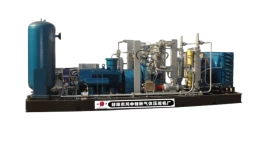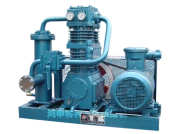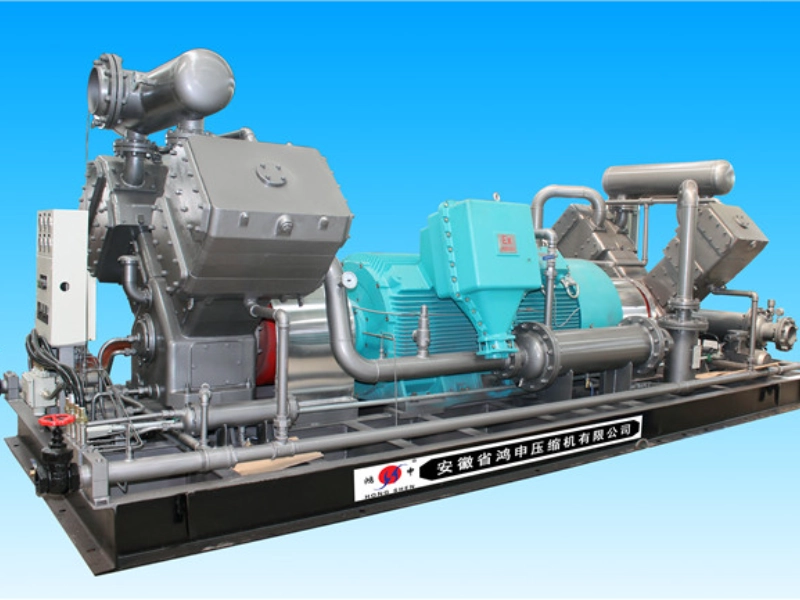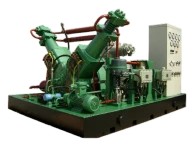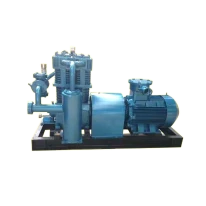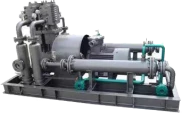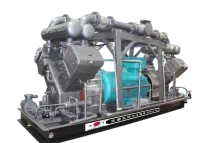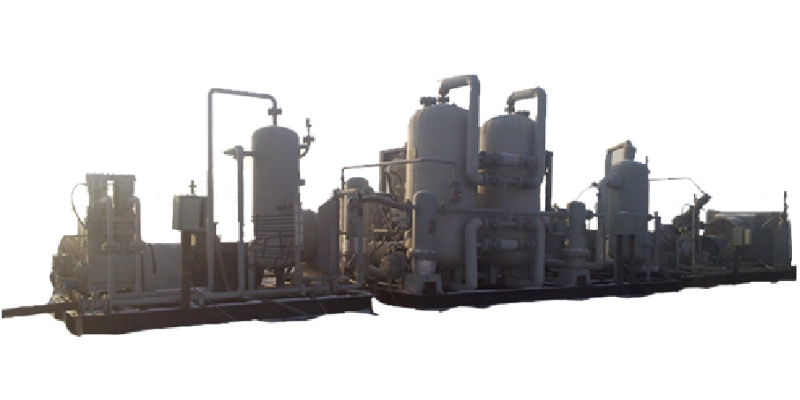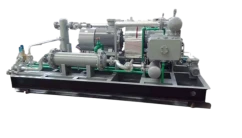A hydrogen compressor is a device used to increase the pressure of hydrogen, and is usually used for hydrogen storage, transportation and industrial applications. Hydrogen itself is a light gas, so it needs to be compressed for more efficient storage and transportation. The working principle and common types of hydrogen compressors are as follows:
Working principle:
Hydrogen compression equipment compress hydrogen by reducing the volume of the gas and increasing the pressure of the gas. The main working principle is as follows:
Intake phase: Hydrogen enters the cylinder of the compressor and is ready to be compressed.
Compression phase: Under the action of the piston or rotor, the hydrogen in the cylinder is compressed, the volume is reduced, and the pressure is increased.
Exhaust phase: The compressed hydrogen is discharged to a storage tank, a transportation pipeline or other required places.
Cooling and lubrication: During the compression process, the temperature of hydrogen will increase, so a cooling system is required to reduce the temperature. At the same time, the lubrication system is used to reduce friction and maintain the long-term reliability of the equipment.
Types of hydrogen compressors:
Reciprocating compressor:
The gas is compressed by the reciprocating motion of the piston in the cylinder.
Suitable for low to medium flow and high pressure requirements.
Typical applications include hydrogen storage and transportation.
Screw compressor:
Compresses gas by rotating two intermeshing screws.
Suitable for high flow rate hydrogen compression.
Commonly used in industrial hydrogen applications, it can provide continuous and efficient compression.
Centrifugal compressor:
Accelerates hydrogen by high-speed rotating rotors and then converts it into pressure.
Suitable for large flow rate hydrogen compression.
Mainly used in large industrial facilities that require a continuous and stable supply of hydrogen.
Key design considerations:
Safety: Hydrogen is highly flammable, and when using low noise hydrogen compressors, the sealing and explosion-proof design of the equipment must be ensured.
Efficiency: The compression process of hydrogen generates heat, so an effective cooling system is required to maintain the working efficiency and equipment life of the compressor.
Maintenance and durability: Due to the special properties of hydrogen, the compressor needs to have high corrosion resistance and long life, especially when used in high pressure environments.
Hydrogen compressors are widely used in:
Hydrogen storage and refueling stations: Hydrogen compressors are used to compress hydrogen to higher pressures so that it can be stored or used for vehicle refueling in hydrogen refueling stations.
Industrial production: Hydrogen is used in various industrial production processes, and compressors are used to ensure the stability and high pressure of hydrogen supply.
Energy system: Hydrogen, as a clean energy, is also used in energy systems such as fuel cells, in which hydrogen compressors play a key role.
In summary, the core function of hydrogen high pressure machine is to increase the pressure of hydrogen by mechanically compressing its volume and provide efficient hydrogen supply in applications. If you want to know more about hydrogen compressors, please feel free to contact us and we will serve you wholeheartedly.

